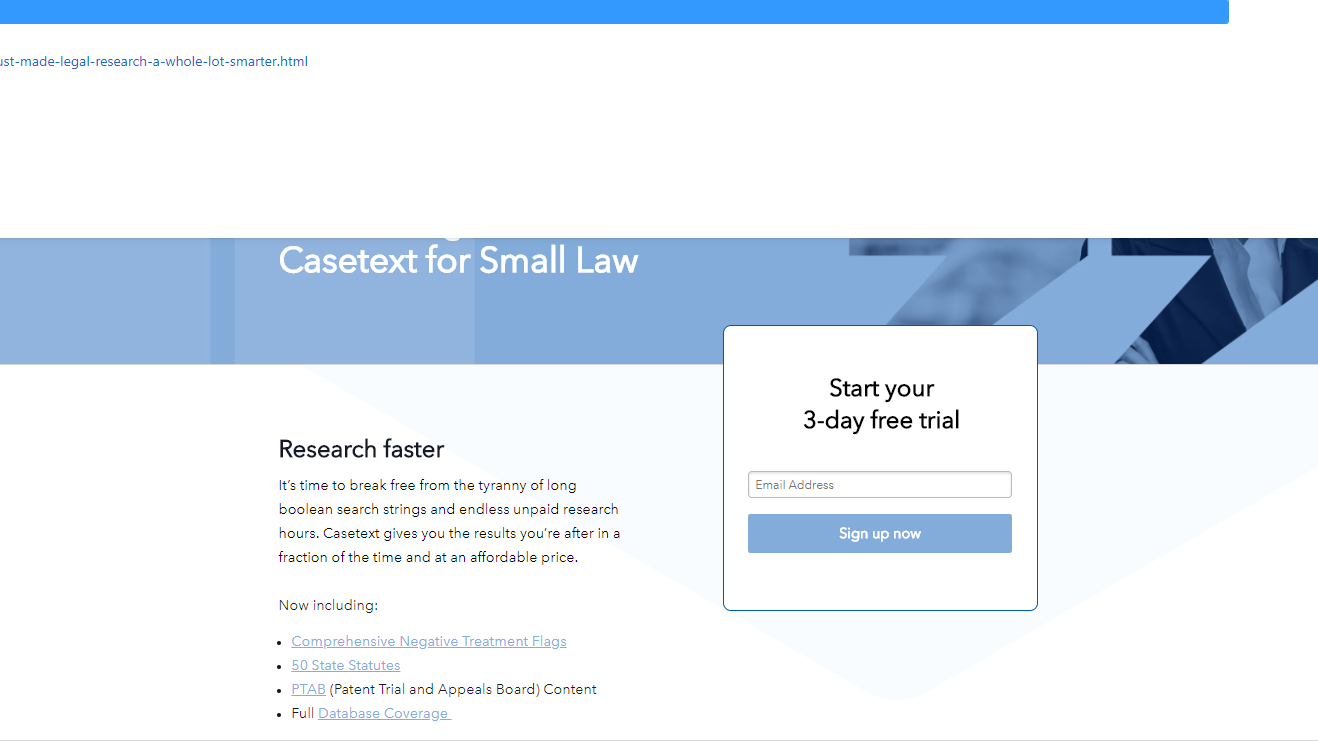When the legal research service Casetext was first launched in 2013, its founders wanted to democratize access to the law by providing free access to legal research enhanced through crowdsourced annotations. As the company grew and took on venture capital, it increasingly targeted its sales and marketing to the large-firm market and implemented pricing appropriate to that market.
Now, the company is, in a sense, returning to its roots, aiming to expand its use among solo and small firm lawyers, while continuing to serve the large-firm sector. Today, it introduced Casetext for Small Law, with new features designed to make its platform more useful to smaller firms, including additions to its library, a new negative-treatment citator feature, and lower subscription prices.
The goal, cofounder and CEO Jake Heller told me this morning, is to provide smaller-firm lawyers with a complete legal research service that gives them everything they need from a provider such as Westlaw or Lexis Advance but at a more-affordable cost.
Today’s announcements include:
- A reduction in the monthly subscription price from $139 to $89. The prepaid annual price goes from $129 a month to $65 a month. Casetext now also offers a two-seat license of $119 a month or $95 a month if paid annually. This is $1,000 less than single-state primary law plans from Westlaw or Lexis, Heller says, and $1,500 less than comparable full-state plans.
- The addition of statutes from all 50 states. Until now, it had statutes for only five states.
- The addition of cases from the Patent Trial and Appeal Board.
- A new negative-treatment citator that shows red flags on cases that have been overturned or treated negatively on appeal. In the past, Casetext relied on algorithmic analysis to identify if a case had been overturned, but its new citator combines human and machine analysis for far more accurate results, Heller said.
Casetext has always had solo and small-firm subscribers, Heller said, but its goal now is to demonstrate to lawyers in smaller firms that Casetext is a viable and lower-cost alternative.
Going forward, the company will invest heavily in building out content and features targeted at smaller firms, Heller said, with more announcements soon to come.
“Our goal is to offer to small and solo attorneys everything you need, done extremely well, at a price you’ll love,” Heller said.
 Robert Ambrogi Blog
Robert Ambrogi Blog